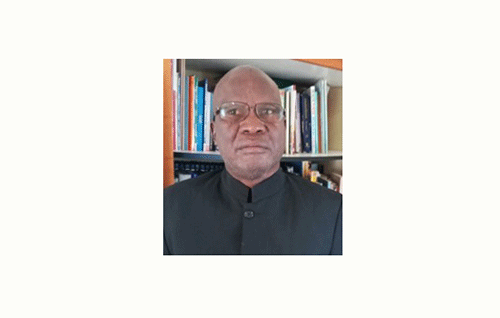Prof. Makala Lilemba
The urge to acquire postgraduate qualifications has become more aspiring now than before the dawn of independence in the history of the Namibian education system.
It is not surprising for Namibians to yearn for these postgraduate qualifications as these opportunities were deliberately denied them during the colonial era. In addition, the institutions for tertiary education inside Namibia were not easy to come by.
Prospective university students had to brave the South African anti-social atmosphere and long dangerous train journeys to venture into the area of tertiary dominion.
The unending strikes of the 1970s after 16 June 1976 kept on driving Namibian students back home and on many occasions they failed to write the examinations.
By the 1980s, there was no university in Namibia, except the Academy for Tertiary Education which was opened in Windhoek around that time.
Therefore, the scramble for postgraduate qualifications should be appreciated as a good gesture in terms of educational and socio-economic development.
Despite many Namibians registering for postgraduate studies, there have been recommendations to stop enrolling for Master’s and PhD programmes from some quarters on the pretext that there are no qualified lecturers to handle such supervision.
This is strange as the students admitted into these programmes are always interviewed and given an oral test and meet the requirements to enrol for the programmes.
Whereas lecturers have been complaining about the poor quality of work from students at that level, the proverbial and Biblical wit saying of trying to remove a particle from your brother or sister’s eye while leaving a pole in yours is real in these institutions.
The supervision research period at some tertiary institutions for Master’s degree students may last for seven years while PhD ones almost clock ten years if not more than that.
In the United Kingdom, a Master’s degree duration is simply one year, while PhD at most is two years in which both course work and research are completed.
One might argue that the United Kingdom is a developed country, and therefore has all what it takes to graduate a student in a record time.
However, the irony is that the same students who clock six years in our tertiary institutions can complete their Master’s degree in one year in many universities in the United Kingdom.
Ironically, both graduates from these different institutions are graded and evaluated equally when applying for a lecturing post at any tertiary institution in Namibia.
The employing university may even rush to employ the one who completed the Master’s degree within a year from the United Kingdom, leaving the one who clocked seven years to finish the same qualification in Namibia.
It is not clear why a student spends one full year or more to complete a ten-paged proposal.
In the process, these students have to cough up huge sums of money for doing nothing during that year.
In the process of supervision, students are tossed around to such a point where they become more confused and disillusioned.
Yes, supervisors should do their work efficiently, but this should not disadvantage the student.
In some institutions, there is the mentality of expecting the students to write what the supervisor thinks.
However, above everything the student should own the work not the supervisor, while the latter’s primary work is to supervise only.
In most cases, the supervisors are not the gurus or experts in the areas they are forced to supervise the student.
This is so disturbing as the supervisor will keep on instructing the student to repeat what the student has already corrected.
It is equally disheartening for students to learn that their supervisors fail to meet on a regular basis to assist the student they are supervising.
In this case, supervisors end up giving contracting comments. In some cases, supervisors fail to read the work of the students and therefore cannot give informed comments.
It is this process, which has led many students acquiring qualifications whose ownership lies elsewhere.
It is a fact that no supervisor will have read all books on the topic chosen by the students because in today’s world of technology, students may be more versed in the topic than the supervisor, and therefore the latter should tread carefully with their comments.
It is relatively true to assume that some Namibian postgraduate students’ work lack content and quality, but one should consider factors like the advent of the English language that appeared on the linguistic horizon in 1990.
It is not fair to expect Namibian students and lecturers to do a good job language-wise.
It is also an unfair comparison between Zambia and Zimbabwe which have been using the Queen’s language for more than two centuries.
Nevertheless, scrutinizing the tenor and correctness of the users of English in these two countries will reveal some flaws like those in Namibia.
In terms of short on content, the lecturers are to blame as some of them fail to give standard notes and materials to students.
Research is hard to come by and there is always no money to carry out research by both students and lecturers.
It is equally unacceptable for a system practised by some universities, where one supervisor is responsible for the supervision of a student as this compromises the quality of education because there are no checks and balances in the research process since one finger alone cannot pick or crush a louse.
Equally noticeable is the fact that Namibian tertiary institutions tend to be training grounds for colleagues who have not lectured satisfactorily in other universities around the globe.
For students to graduate on time, and produce quality academic and research work, needs joint venture and mutual understanding between lecturers and students.


